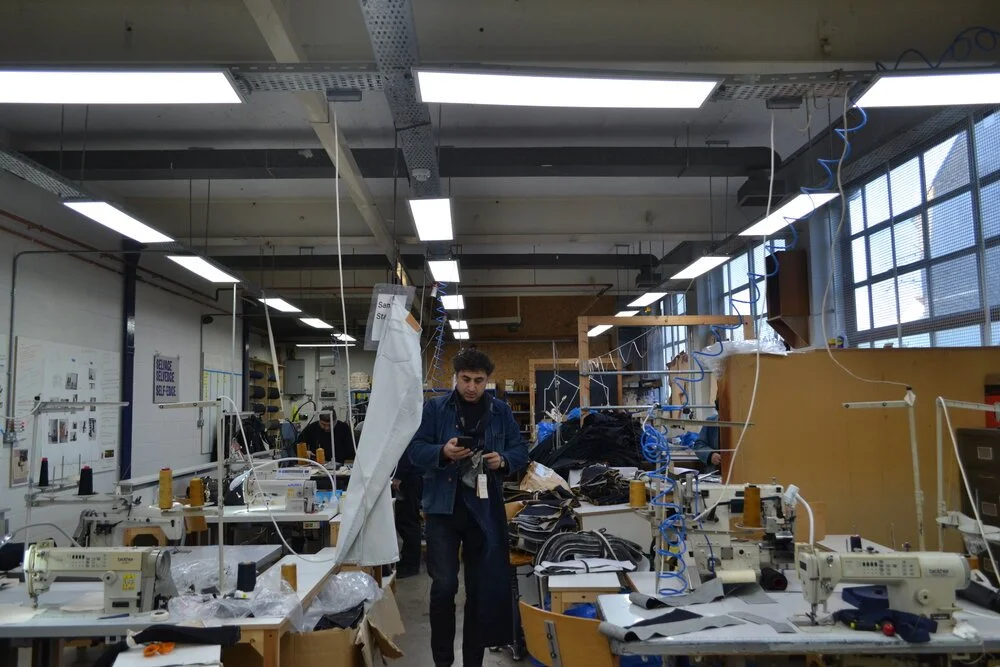What was it: An ethnographic research project with Chelsea Franklin & Maaike Klein. The RCA collaborated with Microsoft Cambridge and briefed us to research the ways in which AI would affect a profession of our choice. The aim was to consider how they might be empowered by its introduction rather than displaced. We were to conduct ethnographic research before designing our speculative AI futures.
We focused our research upon fashion manufacturing. In particular, we were interested in the machinist, a role that tends to get marginalised.
Our documentary film charting our ethnographic research. Shot by me, edited by Maaike Klein.
Our idea
From our research, it appeared that UK factory owners struggle to find skilled workers and to appeal to a younger generation. We predicted new automated machinery will continue to replace lower skilled work but that there will be continued demand for multi-skilled machinists for complex manual operations.
As such, we propose that the role is rebranded and reorganised in order to appeal to a younger generation and incentivise skill acquisition. AI could positively support this near future by offering a way of employing and rewarding machinists using a gig economy model. Work would be assessed through an AI quality control system, using computer vision to determine the measurement accuracy of a garment against the specifications. Rewards would be based on this quality rating and might include equipment access for personal use.
Without intervention, AI risks detrimentally impacting those working within this industry and, through the emphasis of quantity instead of quality, facilitating the wasteful tendencies of fast fashion.
Our speculative AI-AR interface visualised as an animation
Our research
We visited three factories, Blackhorse Lane, a denim factory in Northeast London that employs eleven machinists and produces 140 garments weekly.
Tanya Dimitrova’s Sampling and Production in West London, which makes 80 garments weekly. Each machinist makes a garment from start to finish. The factory produces 80 garments weekly, with each being more complex.
EuroRose Knitwear, a factory in Leicester, uses Shima Seiki knitting machines: an automated machine invented in 1995 to replace a previously manually operated one. The factory produces a total of 8,000 garments weekly for fast-fashion brands including ASOS.
Blackhorse Lane Atelier in North East London - the first factory we visited.
The speculative interface being exhibited at our WIP show alongside the interview and research book.


